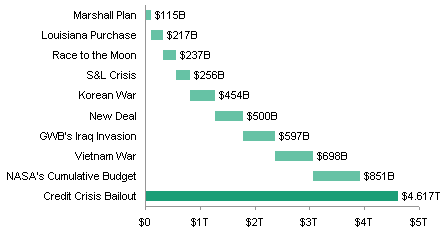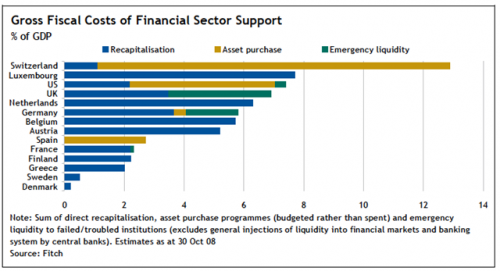Until recently, I have never really been a passionate participant in the immigration debate; however, living here in Arizona, it is virtually impossible to avoid this discussion. One observation I can make with some confidence is that, like most political debates, few of the participants seem to have opinions that are grounded in a consistent philosophy (rather than just a pragmatic collection of political points of view, as discussed here). As a result, rather than quoting stats on illegal border crossings or the number of Al Qaeda operatives supposedly running around the Arizona desert, I thought I would try to lay out the philosophical argument for immigration.
Individual Rights Don't Come From the Government
Like the founders of this country, I believe that our individual rights exist by the very fact of our existance as thinking human beings, and that these rights are not the gift of kings or congressmen. Rights do not flow to us from government, but in fact governments are formed by men as an artificial construct to help us protect those rights, and well-constructed governments, like ours, are carefully limited in their powers to avoid stifling the rights we have inherently as human beings.
Do you see where this is going? The individual rights we hold dear are our rights as human beings, NOT as citizens. They flow from our very existence, not from our government. As human beings, we have the right to assemble with whomever we want and to speak our minds. We have the right to live free of force or physical coercion from other men. We have the right to make mutually beneficial arrangements with other men, arrangements that might involve exchanging goods, purchasing shelter, or paying another man an agreed upon rate for his work. We have these rights and more in nature, and have therefore chosen to form governments not to be the source of these rights (for they already existed in advance of governments) but to provide protection of these rights against other men who might try to violate these rights through force or fraud.
So Citizenship Shouldn't Determine What Rights You Have
These rights of speech and assembly and commerce and property shouldn't, therefore, be contingent on "citizenship". I should be able, equally, to contract for service from David in New Jersey or Lars in Sweden. David or Lars, who are equally human beings, have the equal right to buy my property, if we can agree to terms. If he wants to get away from cold winters in Sweden, Lars can contract with a private airline to fly here, contract with another person to rent an apartment or buy housing, contract with a third person to provide his services in exchange for wages. But Lars can't do all these things today, and is excluded from these transactions just because he was born over some geographic line? To say that Lars or any other "foreign" resident has less of a right to engage in these decisions, behaviors, and transactions than a person born in the US is to imply that the US government is somehow the source of the right to pursue these activities, WHICH IT IS NOT.
In fact, when the US government was first formed, there was no differentiation between a "citizen" and "someone who dwells within our borders" - they were basically one in the same. It is only since then that we have made a distinction. I can accept that there can be some minimum residence requirements to vote in elections and perform certain government duties, but again these are functions associated with this artificial construct called "government". There should not be, nor is there any particular philosophical basis for, limiting the rights of association, speech, or commerce based on residency or citizenship, since these rights pre-date the government and the formation of border.
New "Non-Right Rights" Are Killing Immigration
In fact, until the 1930's, the US was generally (though not perfectly) open to immigration, because we accepted the premise that someone who was born beyond our borders had no less right to find their fortune in this country than someone born in Boston or New York. I won't rehash the history of immigration nor its importance to the building of this country, because I don't want to slip from the philosophical to the pragmatic in my arguments for immigration.
In the 1930's, and continuing to this day, something changed radically in the theory of government in this country that would cause immigration to be severely limited and that would lead to much of the current immigration debate. With the New Deal, and later with the Great Society and many other intervening pieces of legislation, we began creating what I call non-right rights. These newly described "rights" were different from the ones I enumerated above. Rather than existing prior to government, and requiring at most the protection of government, these new rights sprang forth from the government itself and could only exist in the context of having a government. These non-right rights have multiplied throughout the years, and include things like the "right" to a minimum wage, to health care, to a pension, to education, to leisure time, to paid family leave, to affordable housing, to public transportation, to cheap gasoline, etc. etc. ad infinitum.
Here is a great test to see if something is really a right, vs. one of these fake rights. Ask yourself, "can I have this right on a desert island". Speech? Have at it. Assembly? Sure, if there is anyone or things to assemble with? Property? Absolutely -- if you convert some palm trees with your mind and labor into a shelter, that's your home. Health care? Uh, how? Who is going to provide it? And if someone could provide it, who is going to force them to provide it if they don't want to. Ditto education. Ditto a pension.
These non-right rights all share one thing in common: They require the coercive power of the government to work. They require that the government take the product of one person's labor and give it to someone else. They require that the government force individuals to make decisions in certain ways that they might not have of their own free will.
And since these non-right rights spring form and depend on government, suddenly citizenship matters in the provision of these rights. The government already bankrupts itself trying to provide all these non-right rights to its citizens -- just as a practical matter, it can't afford to provide them to an unlimited number of new entrants. It was as if for 150 years we had been running a very successful party, attracting more and more guests each year. The party had a cash bar, so everyone had to pay their own way, and some people had to go home thirsty but most had a good time. Then, suddenly, for whatever reasons, the long-time party guests decided they didn't like the cash bar and banned it, making all drinks free. But they quickly learned that they had to lock the front doors, because they couldn't afford to give free drinks to everyone who showed up. After a while, with the door locked and all the same people at the party, the whole thing suddenly got kind of dull.
Today, we find ourselves in political gridlock over immigration. The left, which generally supports immigration, has a lot at stake in not admitting that the new non-right rights are somehow subordinate to fundamental individual rights, and so insist new immigrants receive the full range of government services, thus making immigration prohibitively expensive. The right, whether through xenophobia or just poor civics, tends to assume that non-citizens have no rights whatsoever, whether it be the "right" to health care or the more fundamental right, say, to habeas corpus.
A Not-so-Modest Proposal
So what would I do? Well, this is blogging, so I am not really obligated to come up with a plan, I can just complain. After all, Howard Dean said "Right now it's not our job to give out specifics", so why should I have to? But, I will take a shot at it anyway:
- Anyone may enter or reside in the US. The government may prevent entry of a very short list of terrorists and criminals at the border, but everyone else is welcome to come and stay as long as they want for whatever reason. Anyone may buy property in the US, regardless or citizenship or residency. Anyone in the US may trade with anyone in the world on the same terms they trade with their next door neighbor.
- The US government is obligated to protect the individual rights, particularly those in the Bill of Rights, of all people physically present in our borders, citizen or not. The government may also define a certain number of core emergency services (e.g. fire, police, trauma care) to which all residents, citizens or not, have equal access.
- Certain government functions, including voting and holding office, may require formal "citizenship". Citizenship should be easier to achieve, based mainly on some minimum residency period, and can be denied after this residency only for a few limited reasons (e.g. convicted of a felony). The government may set no quotas or numerical limits on new citizenships.
- All people present in the US pay the same taxes in the same way. A non-citizen or even a short term visitor pays sales taxes on purchases and income taxes on income earned while present in the US just like anyone else. Note that this is not radical - I am a citizen and resident of Arizona but other states like California tax me on income earned in that state and purchases made in that state.
- While I would like to eliminate much of the welfare state altogether, I won't address that today (Don't underestimate, though, how damaging the welfare state and the
highly regulated economy can be to immigrants, and the problem that can
cause, as demonstrated today in France) For purposes of this plan I will merely state that the non-right right type government services should be divided into two pools: Services only available to citizens and services available to those who are paying into the system.
- The first category might include pure handouts, like Welfare, farm subsidies, and public housing. This category can even include public policy decision like "allowing squatters or vagrancy on public lands", since this is an effective subsidy as well in the form of public housing.
- The second include services like public transportation or unemployment insurance -- if the individual is paying the fair (for example, the employer is paying her unemployment premiums) then they should have access to the service. Social Security is a tough beast to classify - I would put it in the "Citizen" category as currently structured, but would gladly put it in the "available to everyone" category if SS could be restructured to better match contributions with benefits, as in a private account system.
That's enough for now. I wrote more on immigration here.
Postscript- And please don't tell me that a government's job is to "defend its borders". Its not. A government's job is to defend its citizens and residents. There are times that this job may literally require defending the borders (e.g. France in 1940) but that clever misrepresentation of the role of government is the linguistic trick immigration opponents use to justify all sorts of semi-fascist actions, like building this happy little wall in Nogales:

Which seems awfully reminiscent of this wall in Berlin:

Compare Berlin and Nogales. What is the fundamental principle that makes preventing the movement of people one-way across a border one of the worst human rights violations in the last century, but preventing them from moving the other way across a border is a fine policy with bi-partisan support here in Arizona?
Technorati Tags: Immigration, Economics,
Philosophy,
International



